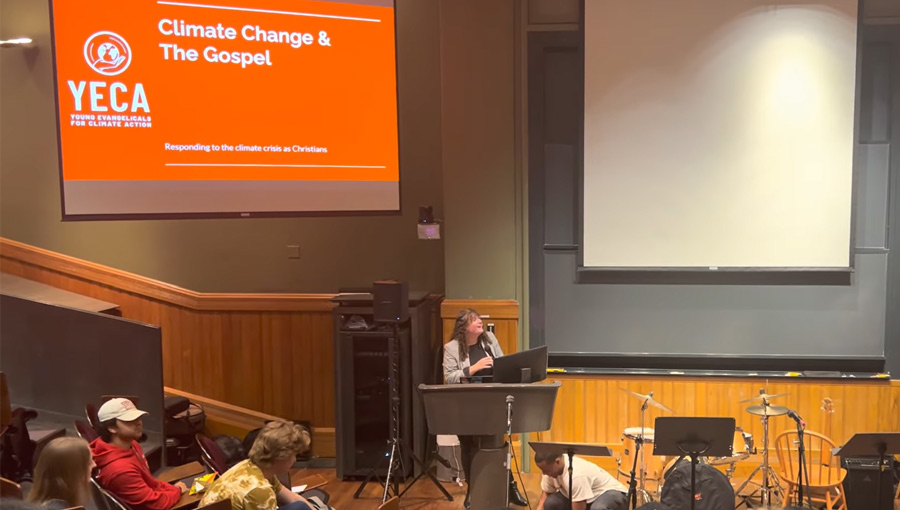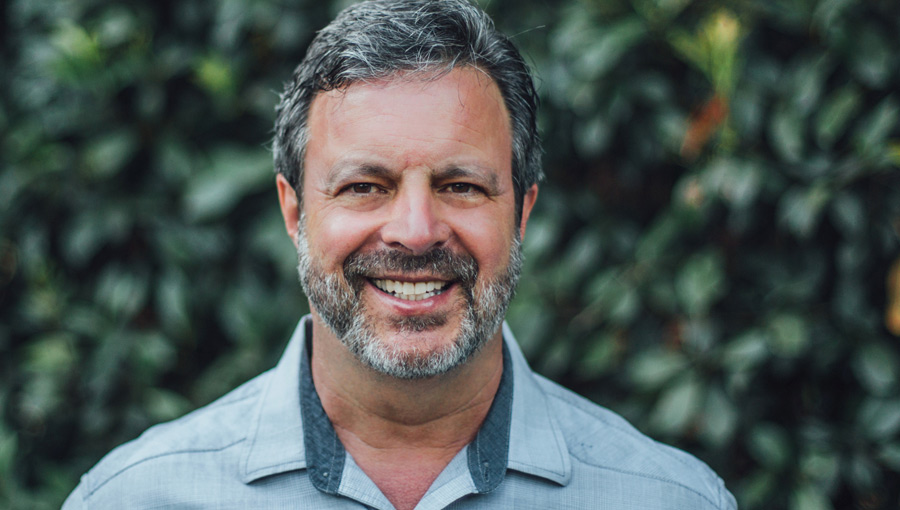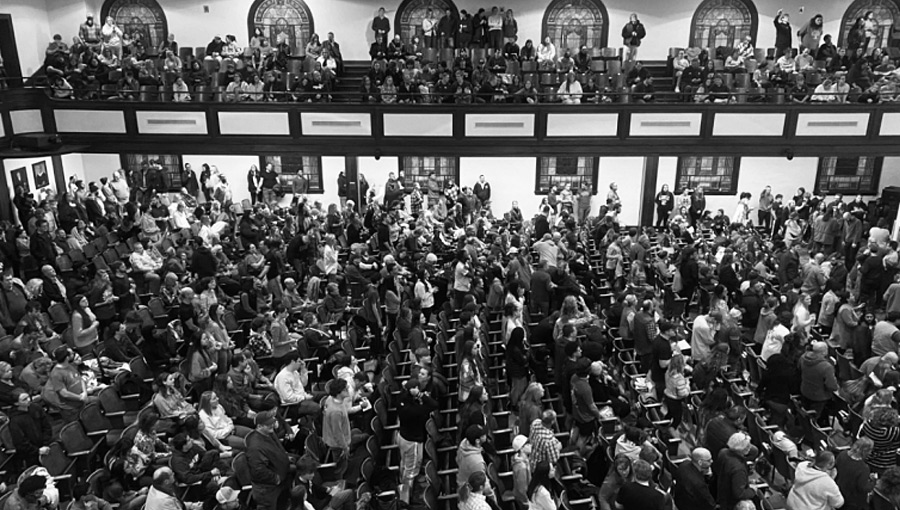CU Gloria Social Action Team Explores Environmentalism and the Gospel
By Anne Kerhoulas
What does climate change have to do with Jesus? For many people, the answer is nothing. But as environmental activism and climate policy become more central to the world stage, Christians are speaking into the conversation with a simple but profound truth: environmental stewardship is a call placed on every Christian.
In Genesis 1-2, God gives Adam and Eve the Creation Mandate—“the ongoing charge to humanity, in the power and blessing of God, to be fruitful, multiply, and fill the earth and to gently subdue and cultivate the earth,” as stated by William Edgar. This charge forms the basis of Christian ethics surrounding climate activism: God’s people have been commanded by God to steward his good creation into fruitfulness and wholeness.
This biblical vision is exactly what the Christian Union Gloria Social Action Team is hoping to recover as they tackle the issue of environmental stewardship head-on this year.

“We tried to put together a mission statement for what we wanted the social action team to embody this year, and the main word that came to mind was “stewardship” — specifically, building up a Christ-like spirit of service that manifests as stewardship. And in an intuitive way that translates into climate work,” says Amen Gashaw, a Social Action Ministry Team Leader.
To that end, Gashaw and her co-lead Sam Lowry put on a week of events aimed at bringing environmental stewardship into the forefront of their peer’s minds. From inviting students to calculate their carbon footprint to challenging one another to eat a plant-based meal in the dining hall to reducing the number of pages students print on a daily basis, the team created practical and doable challenges for their community. The week culminated with a Friday-night DOXA featuring Tori Goebel, the National Organizer and Spokesperson for Young Evangelicals for Climate Action.
Goebel’s talk was well received, as it presented a biblical and political basis for climate advocacy and work, while also challenging students to think holistically about the impact of climate change on refugees, immigrants, and the poor—people groups that Jesus commands his followers to care for.
On top of raising awareness and connecting climate change to the gospel, Gashaw sees climate activism as a unique opportunity for mission and collaboration with non-Christian social action organizations around a shared vision. “Climate change is one of the most unifying topics on campus. Everyone is pro-climate policy,” Gashaw explains.
“In general, we can’t think about climate in a silo; it’s at the intersection of a lot of other policy areas,” Gashaw continues. “One thing we talked about is finding ways for [CU Gloria] to collaborate with other social action organizations. [CU Gloria] semi-cosponsored an advocacy event for Ukraine, and we are interested in finding more opportunities to work with other groups that don’t have a religious tilt but with whom we have alignment on policy perspectives.”
But uniting Christians to other not explicitly Christian organizations on campus isn’t the only impetus for spearheading climate policy. Lowry noted that based on the current party structure, many Christians vote Republican, a party that historically has situated climate policy as less important than other issues. But God gave Christians the role of ruling over creation and not destroying it. Climate policy, therefore, has the potential to unify Christians across the aisle.
While the week of events was a success, Gashaw and Lowry know that the biggest challenge is putting ideas and beliefs into practice.
“A lot of people are connecting the dots between the gospel and how it calls us to environmental stewardship. But the biggest step is translating that into action,” says Gashaw. “What you do and your behavior have an impact, but most people lack a sense of agency. They feel that their decisions and individual actions are not going to make a huge difference. I struggle with that and a lot of others do too; it’s a collective action problem. If no single action changes things, then no change will occur. Our hope for ourselves and for our peers is that they will feel they have the agency to make small-scale changes at home.”
“Living more sustainably is more expensive. Not everyone can afford to buy a Tesla and vegan meals are more expensive,” adds Lowry. “That is a fact of how society is set up right now. Moving forward is finding ways to make more sustainable decisions accessible. We need to be extending what the gospel calls us to do in practical facets of life that aren’t just spiritual disciplines.”
Though there is much work ahead, the social action team has started an invaluable conversation with their peers and anticipates collaborating with other campus organizations—for the good of creation and God’s kingdom.



